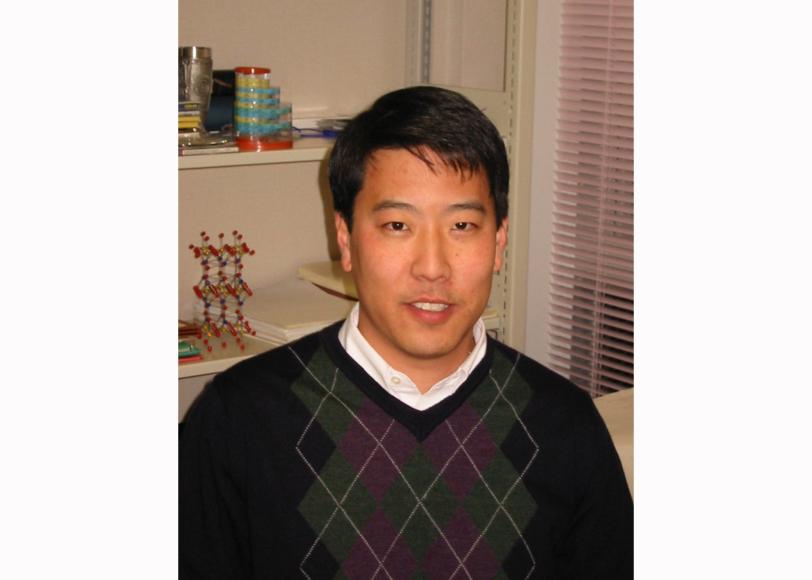American Physical Society Names Prof. Harold Hwang a Fellow
Harold Hwang, professor of applied physics and photon science at Stanford and SLAC, has been elected a fellow of the American Physical Society, the largest physics association in the world.
By Diane Rezendes
Harold Hwang, professor of applied physics and photon science at Stanford and SLAC, has been elected a fellow of the American Physical Society, the largest physics association in the world. APS confers this distinction on just one-half of one percent of the Society’s membership; it is especially significant because it is a peer-nominated honor.
Hwang’s specialty is materials physics; his area of focus is complex oxides – materials that have similar crystal structures but differing properties (insulators and semiconductors would be examples). Having a common crystalline structure lends itself to layering, which could lead to creating entirely new crystal structures. "The challenge going forward is to understand the design principles so we can engineer new materials for electronics, sensing and energy applications,” Hwang said, explaining his work in an October 2010 article in SLAC Today.
Hwang says that while being named an APS fellow is an acknowledgment of the work he’s done so far, it also represents the hope that he will continue contributing to the physics community in a meaningful way.
Though born and raised in the United States, he had lived and worked in Tokyo until recently. “It’s nice to come back to this community,” he said, adding that he had no idea that his peers had nominated him for the APS honor until he learned he had received it. “Everyone’s busy,” he said. “It’s nice that they took the time to do this.”
Achieving this recognition so early in his career speaks to the quality and impact of his work, said Cynthia Friend, SLAC’s associate lab director for photon science. “As a scientific leader, he inspires others,” she said. But Friend also characterizes him as “a wonderful colleague.” Recalling a recent power outage, she said Hwang stepped right in: “He did a great job. He’s willing to help the larger organization and the community.”
Prior to his Stanford appointment last year, Hwang was a professor at the University of Tokyo and a visiting professor at Kyoto University. He holds a PhD in physics from Princeton and a master’s in electrical engineering, a bachelor’s in electrical engineering and a bachelor’s in physics from the Massachusetts Institute of Technology.
From its start with 38 Columbia University physicists in 1899, APS is now the largest physics association in the world with some 46,000 members. Its fellows program began in 1924.

(Photo courtesy of Harold Hwang)